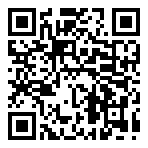Business is more mobile now than it has ever been. For the most part, this uptick in mobility has helped sustain some business at a time when many would be expected to fail, but mobility isn’t all good. This month we thought we would take a long look at mobility and how it can be a problem for modern businesses.
Attend IT Blog
Mobile devices (as their name would suggest) go everywhere, including the modern office. As such, it is likely that your employees will want to take advantage of their capabilities to accomplish more of their responsibilities and tasks. This can be advantageous to your business, assuming that you have a well-thought-out mobile device policy in place.
Mobile devices have a prevalent place in the modern office. In fact, a recent study by Gartner found that 80 percent of all employees bring their personal mobile device with them to work. This Bring Your Own Device (BYOD) trend comes with a host of benefits, like improved productivity and employee morale, but it increases the risk of a corporate data breach if not properly managed. How should a concerned business owner respond to this trend?
The responses we’ve seen over the years is either employers trying to curb it by supplying company devices, or nixing mobile devices altogether. Both of these options have some serious side effects that must be taken into consideration.
I’ll Just Issue Business-Approved Mobile Devices
Depending on the kind of work your employees do, this might be a good perk. You can take serious considerations into the platform (iOS, Android, Windows), contract terms, and how the company will control and protect its data. You can also map out how you will separate work from personal use on the device, clearly lay out what you can do and what the employee can do, what happens if the device is lost, what happens if the employee quits, etc.
The problem with this method is that it’s often seen as a quick fix. Throwing money at this problem and forcing employees to use work-issued devices won’t solve the problem of controlling data without putting together the plan. Plus, while statistics do show that employees aren’t necessarily unhappy with corporate devices, if they feel strong-armed into using a device, the staff who were using their own devices to actually work harder and more effectively might feel slighted. That said, other employees might like the idea of getting a new smartphone on the company’s dime. It’s really going to depend on your employees and company culture.
I’ll Just Ban All Mobile Devices in the Workplace
It’s a big ultimatum: no email access, no file access, no messengers, no note-taking, no mobile devices, period. Anyone caught using a personal device will be penalized or written up. You’ll certainly protect your data this way. Chances are though, you’ll also create agita with staff who were really just trying to do their jobs better. Employees won’t think about the ramifications of lost data, they will just think their boss is making it harder for them to be effective. Fortunately, most employers haven’t resorted to this, but it still happens. Beyond just stirring up emotions, this can drastically set your company back compared to competitors that are welcoming mobility and benefiting from it.
It Sounds Bad, But There are Options
There is a middle-ground between banning devices altogether and enforcing company-issued devices. Policies can be put in place that protects company assets like email and access to data while respecting the privacy of your employees. Employers can push policies - like enforcing users to set up passwords, patterns, or pins to log into the device, grant the ability to revoke access to email, and even wipe the device remotely if it is lost or stolen.
Personal laptops can be granted company antivirus and remote monitoring, or better yet, employers can offer a VPN or hosted desktop solution so they won’t have to worry about the state of the device. The latter can also address other needs such as software licensing and accessing company data while on public Wi-Fi.
Attend IT Limited Can Help
The best way for a business owner to handle mobile devices in the workplace is to implement a BYOD strategy--one that addresses every security risk while enhancing all the benefits of mobile technology. Every business is different, which is why it’s best to have a consultant like Attend IT Limited work with you to develop a BYOD strategy that’s tailored to enhance your company’s goals. Plus, given the security risk inherent in mobile devices, you’ll want an outside perspective to make sure you’re not overlooking anything important.
For professional assistance developing an effective BYOD strategy for your business, give us a call today at 020 8626 4485.
 The small business is under siege. Many small business owners do what they can to compete, but it seems like there is no solution for their revenue woes, as larger organizations are able to attract a larger part of the market share. This has been the case for some time, but there are market forces at work today that make it even more difficult for businesses to contend with competitors that have more resources.
The small business is under siege. Many small business owners do what they can to compete, but it seems like there is no solution for their revenue woes, as larger organizations are able to attract a larger part of the market share. This has been the case for some time, but there are market forces at work today that make it even more difficult for businesses to contend with competitors that have more resources.
Many smaller businesses look to a niche market for sustainability; and, while this seems like a decent strategy on the surface, if demand falls in that niche, you could quickly be faced with some very disheartening questions. Other businesses decide to forgo this strategy and continue as intended, relying on their people’s expertise or experience to guide them through rough patches in business. This is a great strategy until your larger competitors pilfer your organization’s talent with offers of more pay and better benefits.
The truth is that there are no easy answers on how to sustain a small business through turbulent times. For this reason, one avenue almost any small business can venture down is to make improvements in technological resources to try and mitigate the gaps in financial and productivity deficits. Technology, if leveraged properly, can build additional efficiency to your offering, making business move faster. The problem for the modern small business owner or manager is ascertaining what technology investments make the most sense for you.
Where Do Mobile Devices Fit?
Mobile has been a popular discussion point in every technology-of-the-future discussion for the past ten or twelve years. This means that the future is now for mobile and while there are a lot of things to love about mobile devices, for small businesses they may do more harm than good. For the small business that has already covered their bases with a thorough mobile device management platform and a BYOD strategy, leveraging the positive attributes out of mobile will be simpler than those who are starting from scratch. Of course, it’s easier to build a bridge if you’ve already procured the materials you need, but without some idea of what you’ll use it for, what’s the point?
For a small business, mobile devices can have some positive effects on employee engagement, awareness, and for cultivating the relationships you depend on. On the other hand, mobile devices can be a hopeless waste of time, which just happens to be one of the most critical resources to manage for the small business owner. With well over 90% of a smartphone’s utility wrapped up in distractions, it seems like that is an endless amount of monitoring and management for a very little return. As long as your organization has clear rules in place to manage data dissemination, access, and communication, mobile will continue to work for your business. But, if you are just getting on the mobile bandwagon, be sure to create your mobile policies before relying on mobile as a way to build more revenue.
The Internet of Things
The Internet of Things is what mobile devices were a few years ago: a wild new frontier filled to the brim with entrepreneurial ideas. Where there are a pool of entrepreneurs there is capital, so expect the Internet of Things to continue to come on fast and produce experiences like nothing you have ever seen before. For the small business owner, it will be difficult to pinpoint which solutions will be of benefit to your company. Since many of these devices are going to be marketed to “build efficiency” in some kind of task, it will be on you to determine which products will work for your organization.
There has been some technologies that have already been developed that are sure to work for many organizations. Innovations that allow people to remotely control locks, thermostats, and security infrastructure can go a long way towards protecting a small business. Another technology that has gained traction already is the mobile point-of-sale. With credit card readers that you can take anywhere, it's easy for anyone to get paid. Technologies like this already work for small businesses and it will be interesting to see how many of the 20 billion devices that will be attached to the Internet by 2020 can be useful for your business.
Luckily, nobody who has successfully run a small business thinks it’s going to be easy. So while no one knows what the next big thing will be, by using the technology that is available proficiently, your business may be able to navigate through the perils of entrepreneurship and find success. For more information about small business technologies and how to use them to make your business more efficient, contact the professional IT technicians at Attend IT Limited at 020 8626 4485 today.
 With the aid of technology, today’s workforce is more connected and faster at responding to problems than ever before. While this is great for productivity, it presents challenges for business owners to offer their workers current solutions that won’t hold them back. For many old-school employers, this may require a new way of approaching technology.
With the aid of technology, today’s workforce is more connected and faster at responding to problems than ever before. While this is great for productivity, it presents challenges for business owners to offer their workers current solutions that won’t hold them back. For many old-school employers, this may require a new way of approaching technology.



